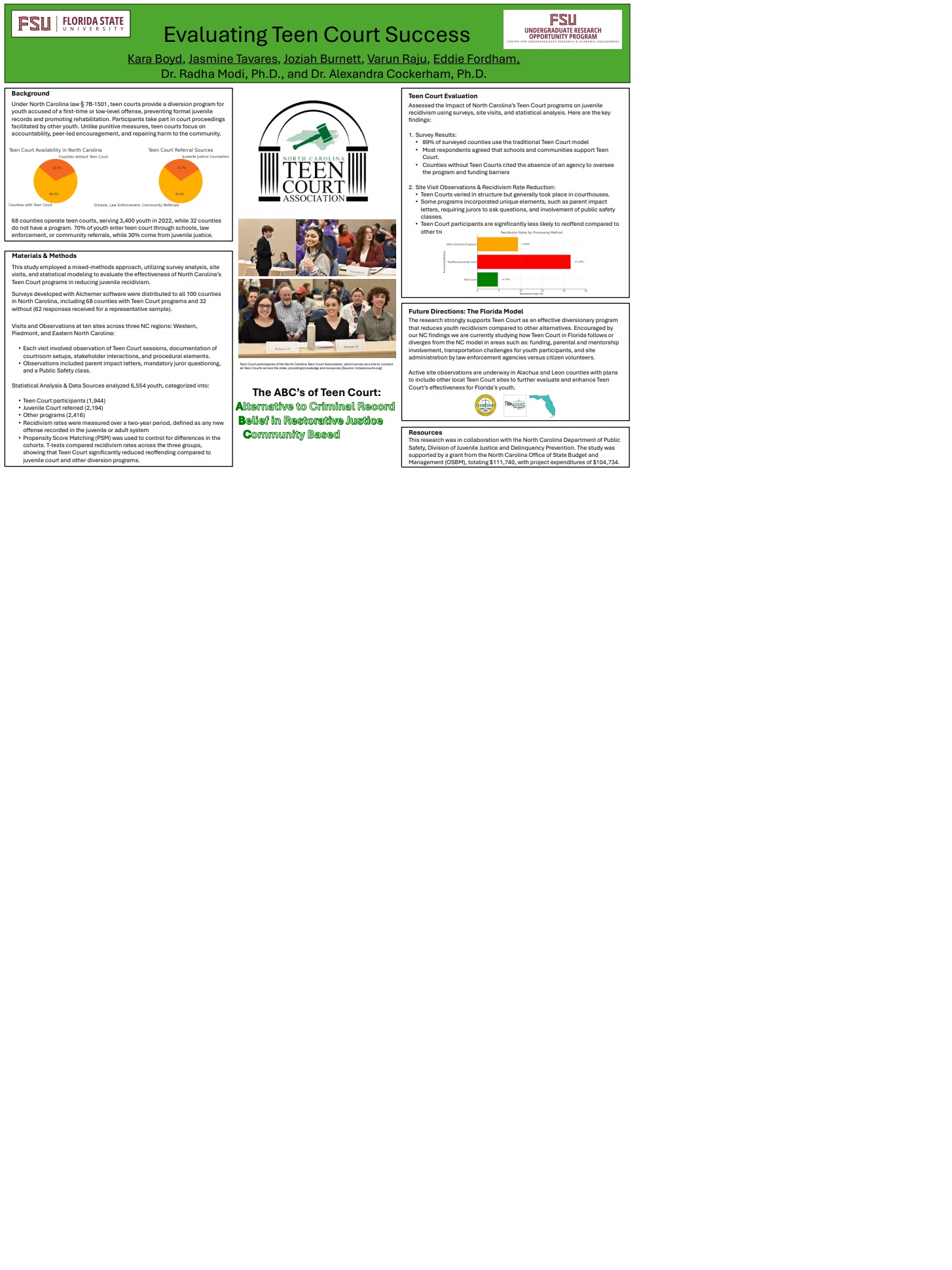Research Symposium
25th annual Undergraduate Research Symposium, April 1, 2025
Eddie Fordham Poster Session 4: 3:00 pm - 4:00 pm/ Poster #106

BIO
As a Jack Kent Cooke Undergraduate Transfer Scholar and first-generation college student, Eddie is pursuing a Bachelor's in Interdisciplinary Social Sciences with a certificate in Public Policy at FSU. In his first semester, he joined the Transfer Leadership Institute (TLI) and discovered a passion for undergraduate research through the University Research Opportunity Program (UROP). This led him to assist Dr. Alexandra Cockerham’s research on Teen Courts, which divert youth from incarceration. Eddie also completed the Student Government Association’s Legislative Certification Program (LCP), earned a 4.0 GPA, and made the President’s List. He is now in the Honors in the Major program conducting research titled "Degrees of Opportunity," which seeks to reduce barriers for justice-impacted college students to pursue higher education. His project earned an IDEA Grant and will be featured in a blog by FSU’s Center for Undergraduate Research and Academic Engagement (CRE) this summer. Eddie is currently interning with the Innocence Project of Florida and aspires to become a professor at FSU. On weekends, he travels home to Pensacola to visit his Mom and likes to ride his Harley-Davidson “Chainbreaker."
Evaluating Teen Court Success
Authors: Eddie Fordham, Dr. Alexandra CockerhamStudent Major: Interdisciplinary Social Science
Mentor: Dr. Alexandra Cockerham
Mentor's Department: Interdisciplinary Social Sciences and Public Policy Mentor's College: College of Social Sciences and Public Policy Co-Presenters: Kara Boyd, Jasmine Tavares, Joziah Burnett, and Varun Raju
Abstract
Teen Court programs are used to divert youth from traditional criminal legal system processes, aiming to reduce recidivism and provide peer-led interventions. This study evaluates the impact of North Carolina’s Teen Court system on juvenile recidivism compared to traditional court processing and other diversion programs.
We incorporated a mixed-methods study with surveys, site visits, and statistical analysis to assess the structure, effectiveness, and impact of Teen Court programs. Understanding Teen Court’s effectiveness informs policy decisions and improves juvenile justice interventions by emphasizing peer-led encouragement over punitive measures.
We conducted a statewide survey of 100 counties, observational site visits to 10 Teen Court sessions, and a quantitative analysis of recidivism rates to compare Teen Court participants with similarly situated youth in traditional court or other diversion programs.
Preliminary findings indicate significantly lower recidivism rates among Teen Court participants than those processed through traditional juvenile court. Findings emphasize the role of peer accountability, community support, and structured diversion in reducing youth reoffending.
This study highlights the benefits of Teen Court programs in reducing recidivism and promoting positive youth outcomes. Findings support expanding Teen Court initiatives across jurisdictions, and we are currently conducting a study of Teen Court interventions in Florida.
Keywords: criminal justice and Teen Court

